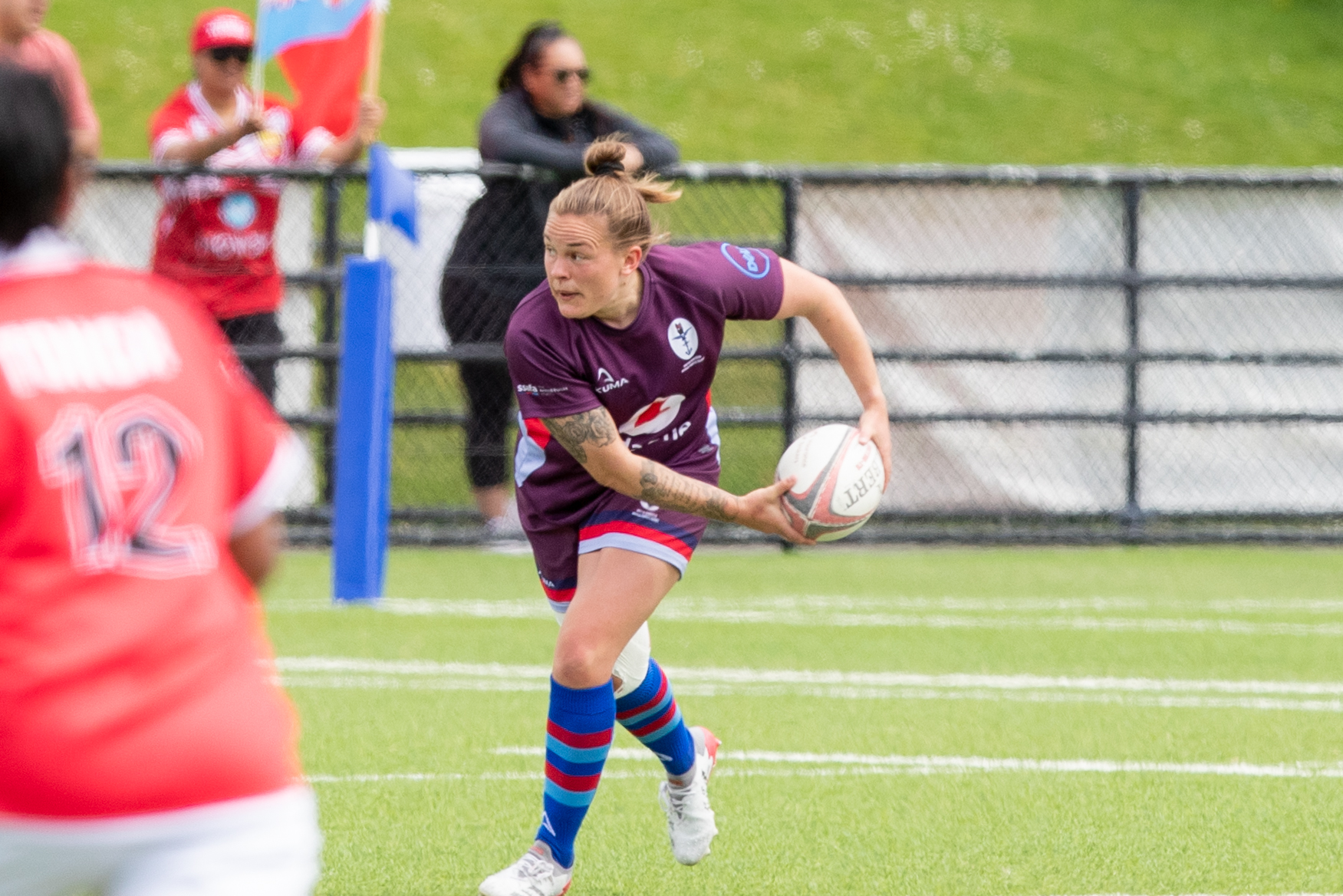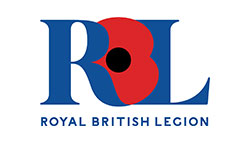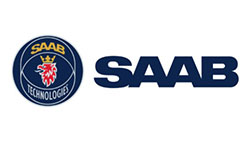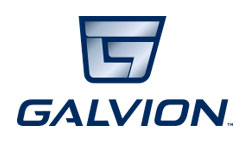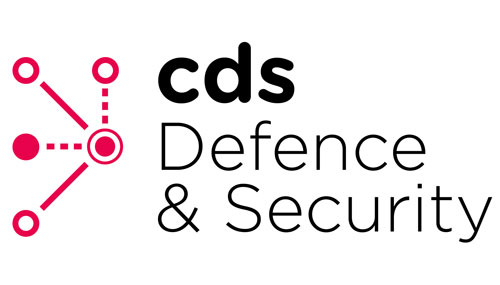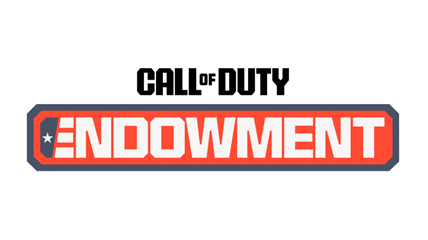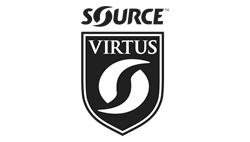Heading home with the Plate trophy from the inaugural International Defence Force Womens World Cup was especially poignant for one member of the UKAF squad, as it brought to an end a lengthy and memorable career which has taken in the top level of Services and civilian rugby.
For SSgt Beverley Gilbert (RAMC), the campaign in New Zealand, which as with its men’s counterpart ran parallel to the Rugby World Cup, was a last hurrah in an on-field journey which started a quarter-century ago in Loughborough aged five or six, included a number of seasons at Harlequins, 15 red shirt caps, and an appearance in the first Army Women’s team to play at Twickenham in this year’s Inter-Services Championship.

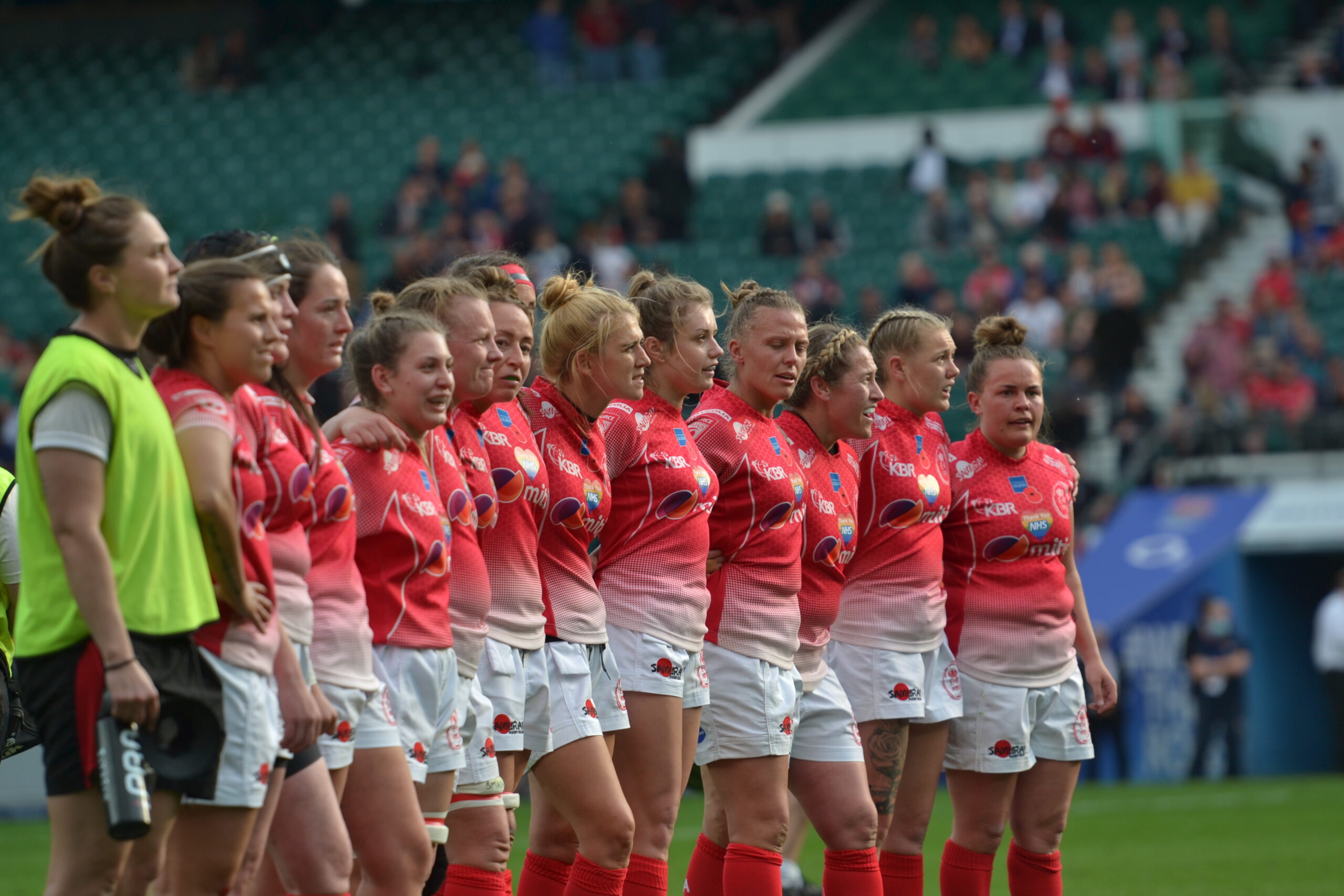
Image © Army v Navy Match
Indeed, that win over the Royal Navy was all set to be SSgt Gilbert’s last competitive run-out, that is until the UKAF coaches came calling…
“I already had it in the back of my mind after Inter-Services that I was going to hang up my boots,” she says, “and then I received the email saying I’d been successful for going onto the UKAF tour.
“That was something I’d been chasing for absolutely ages. I’d had a call-up for UKAF years ago for a game against South Africa but was away with work and unable to attend. So I thought my shot at it had gone. So when I received that email I said to myself that it was me reaching the top of Services rugby and in New Zealand, which was the right time to bow out.”
SSgt Gilbert came off the bench in the opening two fixtures against Australia and Fiji, before starting in the Plate final win over Tonga, and she says that it was the best way to round off her career.
“Everyone has been picked for a reason and it’s good in a way that you’ve had the rivalry and competition during Inter-Services, but then coming together for UKAF for the same common purpose,” she says. “It was good to see people who had been in UKAF for years and people who were new to it, as I was.
“And what a better place to play rugby than New Zealand? The whole atmosphere for the IDWC from the first minute of the opening ceremony was just amazing. That ceremony set the stage, with guest speakers, being greeted with a Haka, and with no set tables for teams it enticed people to intermingle and speak to each other, which was brilliant.
“It set the scene for it being a brilliant tournament, but also because everyone was there for rugby, no matter what country you’d come from.
“For me personally there was no better way to finish off by facing the Tongan Sipi Tau. I was between Erica Mills and Beth Dainton, and you could feel it by the way they were gripping shirts that we were so ready to face them. That was a special moment.”
“It’s going to be in the UK next time, which will be brilliant, and hopefully I’ll be involved in some way.”


Image © UKAF Rugby
As would be expected, SSgt Gilbert had added plenty to her collection of memorabilia, coming home with a Tongan necklace after swapping pin badges and Fijian polo shirt. But there was a serious point to the donations of kit as well, which showed the UKAF team’s positive attitude towards helping rugby communities elsewhere in the world.
“We’d learned very early that Vanuatu and Papua New Guinea had come together as one team because they didn’t have enough funding and people to have separate teams,” SSgt Gilbert explains. “They had limited kit available to them, so our team made a conscious decision in the right, sensitive way, that we were going to donate kit to them. We had a box put out for shorts, socks, boots, bags, you name it, got donated to them.
“That’s another sign of rugby; it’s a community game and we were giving something to them to help them grow the sport out there.”
It is clear throughout the conversation that rugby has given SSgt Gilbert plenty of lasting memories and lifelong friends.


Image © UKAF Rugby
But the sport also played a more serious role in her life, too, helping the medic rehabilitate from PTSD after a tour to Afghanistan, with the support from Help for Heroes.
“I went back to live at home while I was going through rehabilitation, just down the road from Loughborough rugby club, and played rugby there,” she says. “Then when I came back into full-time work, rugby had helped me so much that I wanted to continue doing it within the Army.”
Having been scouted into the Army Development team and then the Senior Womens team, SSgt Gilbert made her red shirt debut against the USA in 2016.
“When it comes to the red shirt very few people get the chance to pull it on, and there’s no other team that I’ve played for where there’s been that sense of belonging. I now hope that I’ve left the shirt in a better place for the next person, who you hope that will then leave the shirt in a better place.”
But with representation needing to be supported by the Chain of Command, SSgt Gilbert is also grateful for the backing she has received, especially in enabling her to compete in the World Cup despite a challenging overseas posting.
“You’ve got to take the rough with the smooth in terms of sport and work balance, and any sportsperson will understand that,” she says. “The most challenging time was when I was a phase 1 instructor at Pirbright, when you are required to look after 12 individuals wanting to join the Army. They were seeing me represent the Army, which was giving them a really good insight, but then it was also hard to train and keep up nutrition when I was so busy.
“My job now is full-on, and for my commanding officer to release me for a month while we’ve got a number of projects on at the same time, he couldn’t have been more supportive of me. I’d made it clear that this was going to be the last time that I was going to be representing Services sport.”
Overseas postings are also useful reminders of the power of sport to cross cultural and communication barriers.
“Yesterday we had five-a-side football, and the next thing you know the children from the local area are watching us, so we invited them to join us. It was the same in Afghanistan and in Kenya, where I took a rugby ball, and it doesn’t matter if you speak the same language, everyone is connected by sport.”
A common theme heard repeatedly from retired sportspeople is the challenge of replicating those bonds and atmosphere experienced within the dressing room. For SSgt Gilbert her next step has begun already, coaching within the AMS grassroots set-up, encouraged by Army rugby legend, Lt Col Ann O’Flynn (RAVC). And in this her principles are clear.
“For me, with teams like Harlequins and the Army everything is based on culture,” she says. “It’s not just the sport, it’s almost like a family, and some of the friends I’ve made through Army Rugby will be friends for life. I want other people to have that opportunity. Everything starts at grassroots, and when I coached I wanted to make sure that everyone bought into not just the rugby, but the culture, such as respecting the referee.
“I already knew that when my playing career was at an end I was going to be giving something back, especially at Corps level. There are so many younger girls joining the Army who have either only played a bit of rugby or who have never played it but want to give it a go.
“If I look at my position, when I started Gemma Stonebridge-Smith was the Army number nine. Then she went into coaching and was then the Head Coach of the Army. There are these players who you look up to that then are coaching you. Hopefully I might be able to coach someone from the AMS to pull on the nine shirt for the Army, which then comes full circle.”
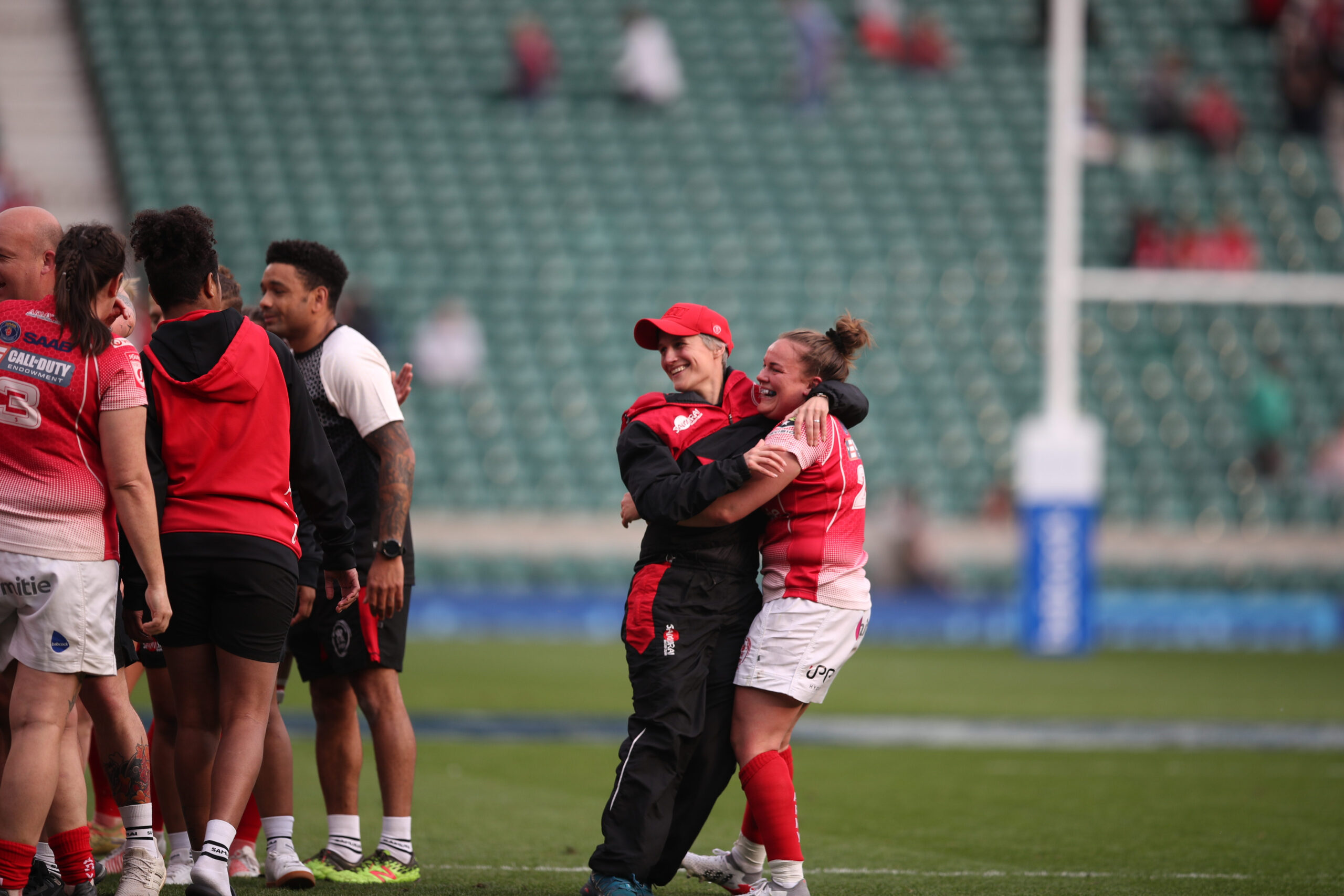
Bev with the then Women’s Head Coach Gemma Stonebridge-Smith at the end of this years Army v Navy match.
Image © Army v Navy Match
Words © New Dogs, Old Tricks
Header and Featured Images © UKAF Rugby
